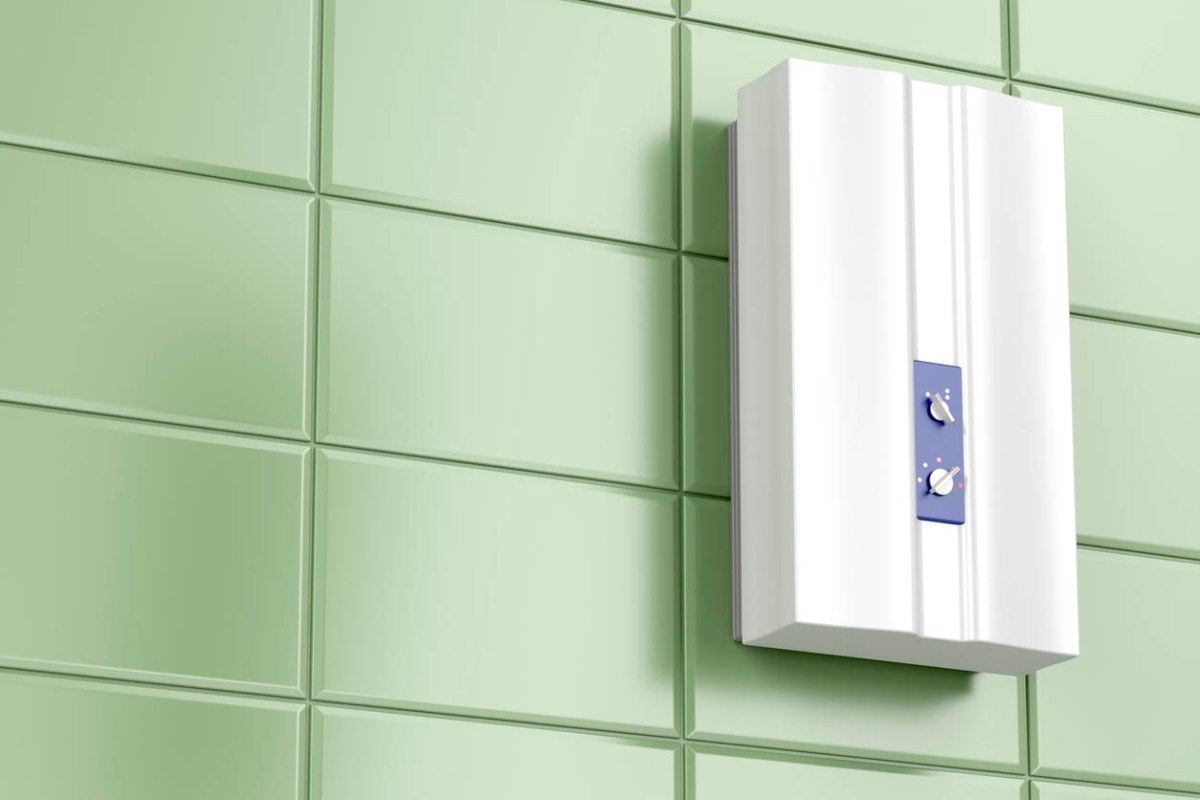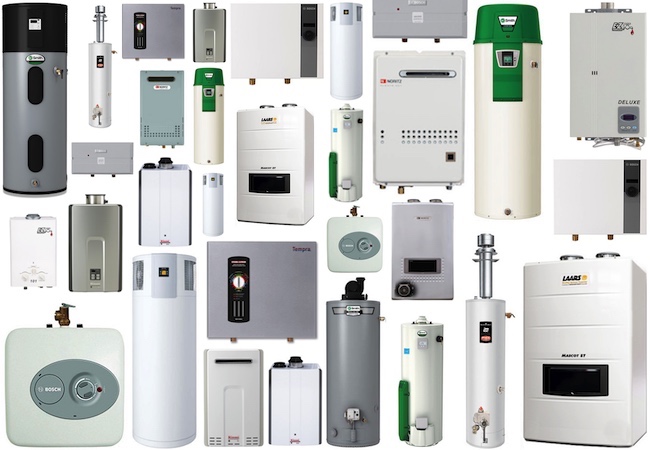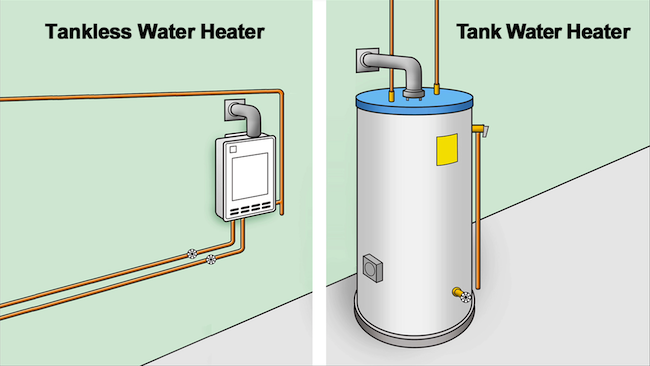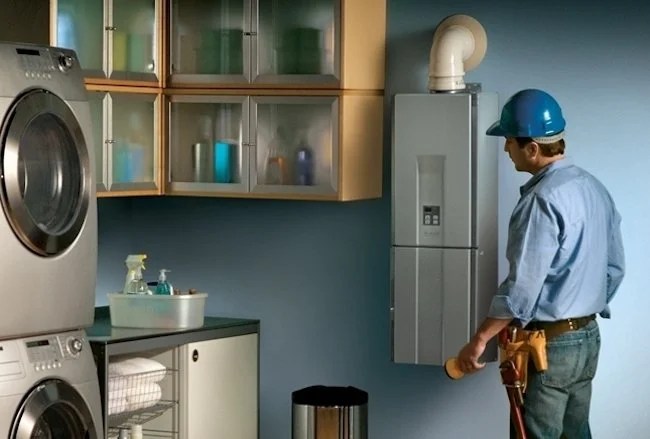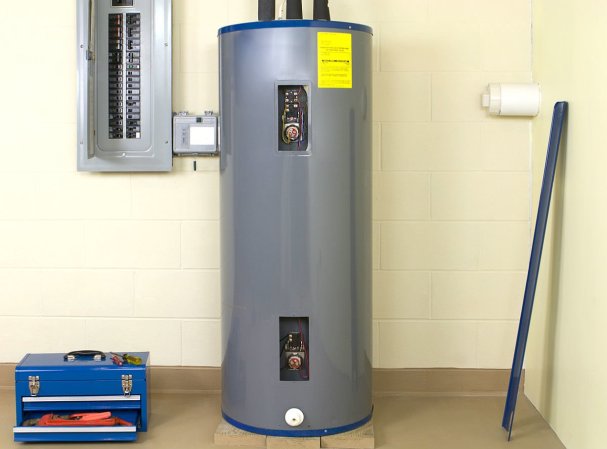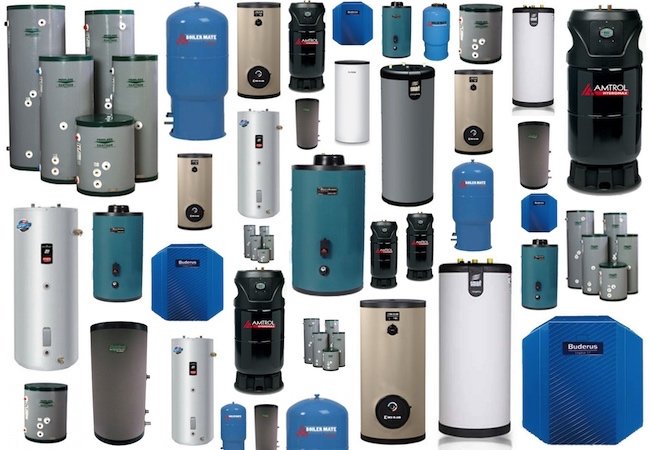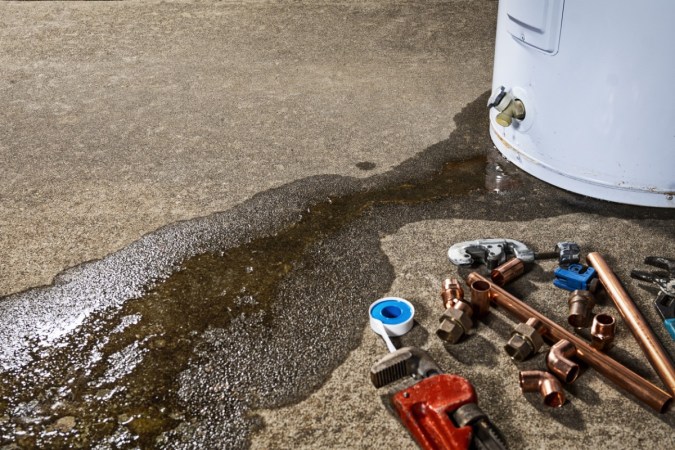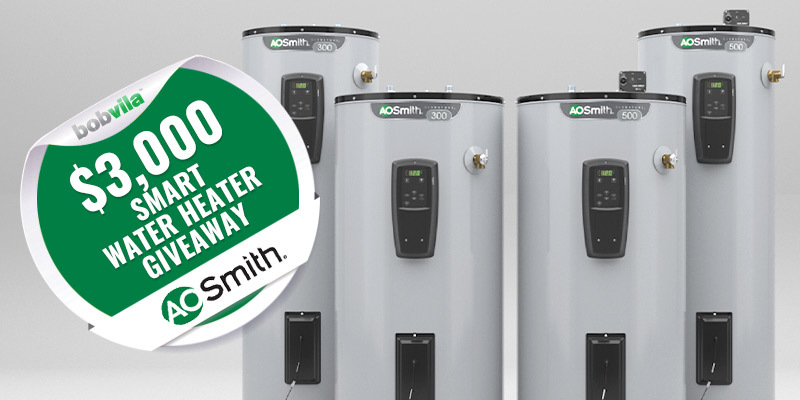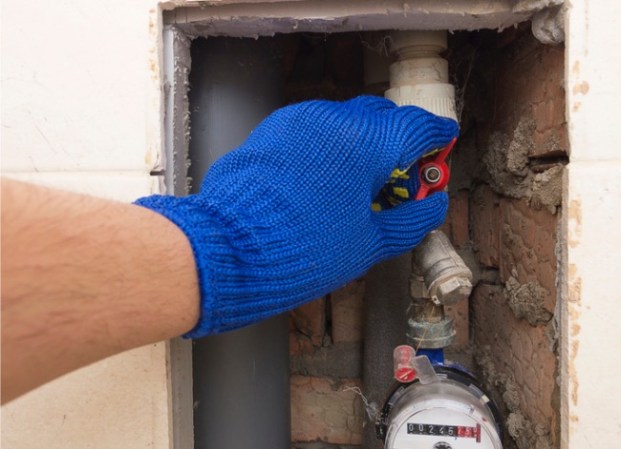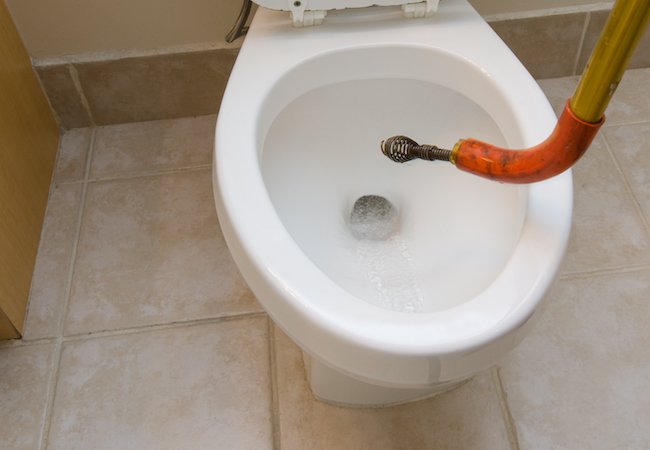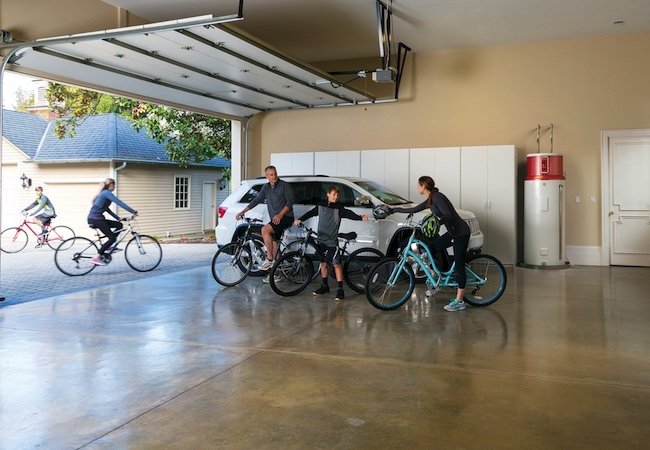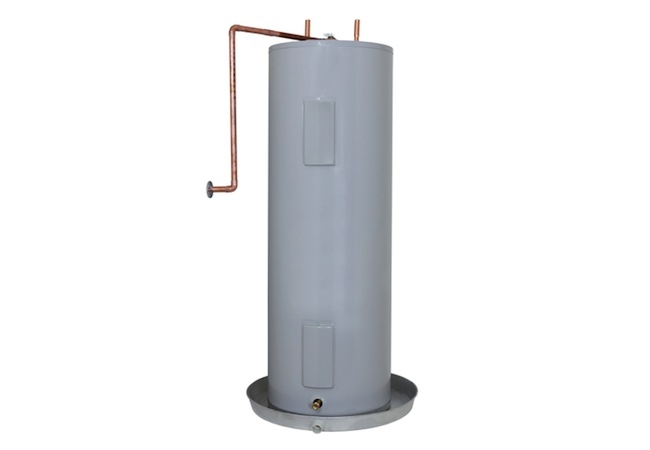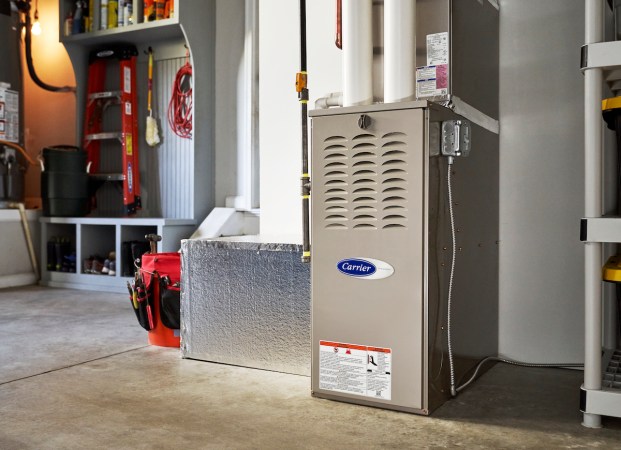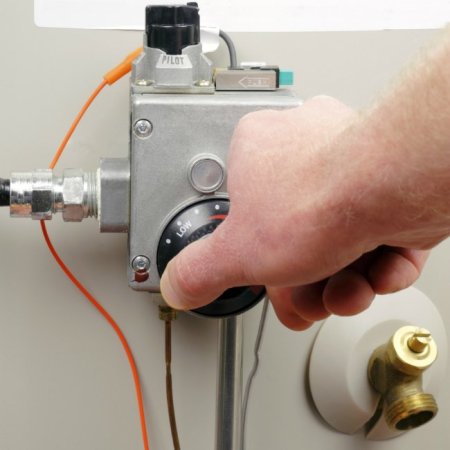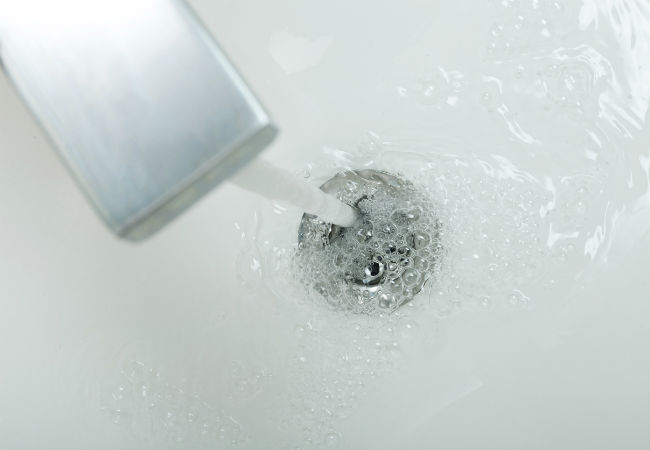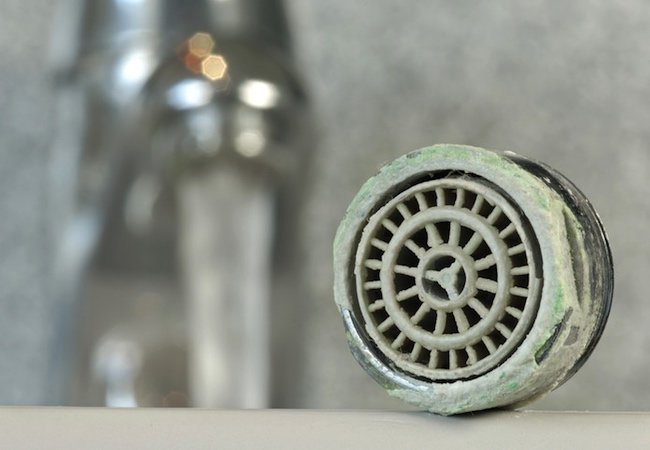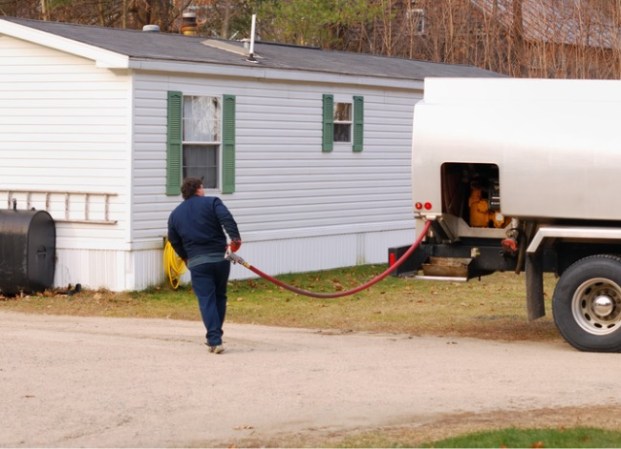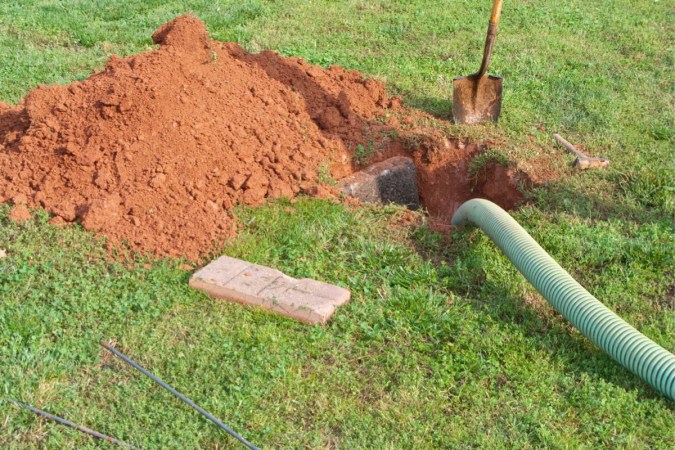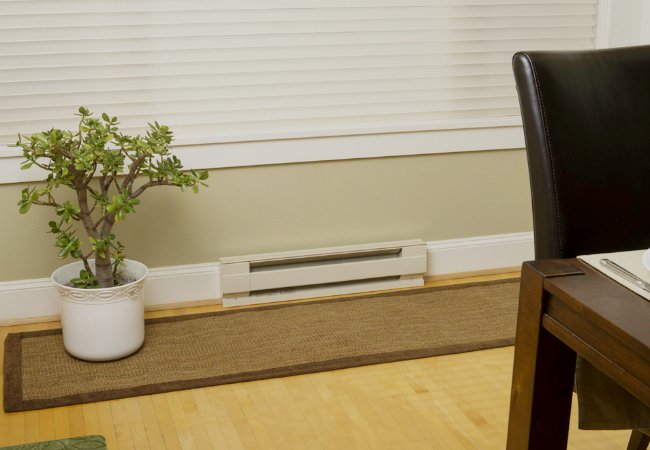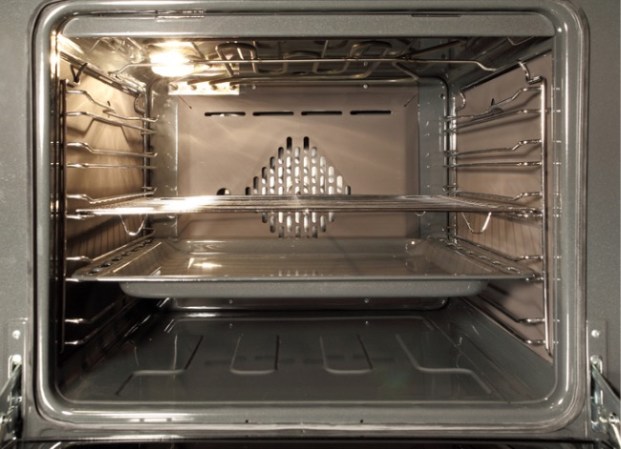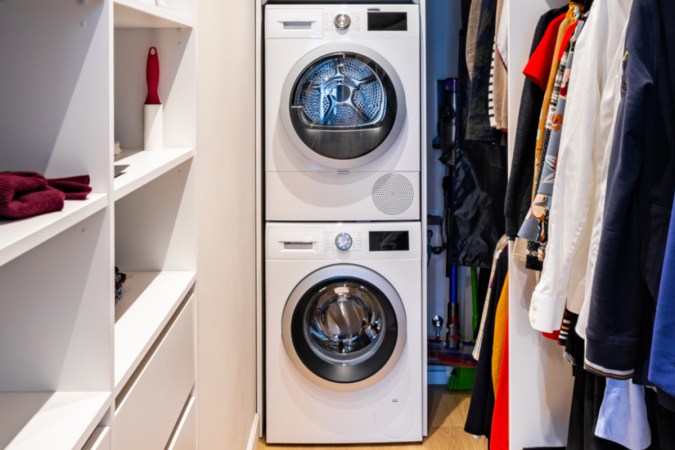We may earn revenue from the products available on this page and participate in affiliate programs. Learn More ›
Q: I recently moved to a home with a tankless water heater, and I want to make sure I’m correctly maintaining it. How does a tankless water heater work, and what issues should I look out for?
A: Tankless water heaters are becoming more common in new homes. While hot water heaters like storage tank heaters hold volumes of hot water in an insulated water tank to be used at any time, tankless heaters can produce hot water on demand. This is achieved when cold water enters the tankless unit and then exits almost immediately, fully heated to the target temperature. Depending on if the heater is a gas water heater or an electric water heater, the water is heated by either a gas burner or electrical resistance heating coils.
Despite being more expensive than a storage tank heater, tankless heaters are becoming more popular because they are more efficient over a long period. This means that while homeowners may pay a premium to purchase and install a tankless water heater upfront, in the long run, their energy bill will be lower compared to other water heaters.
Tankless water heaters heat water directly without using a storage tank.
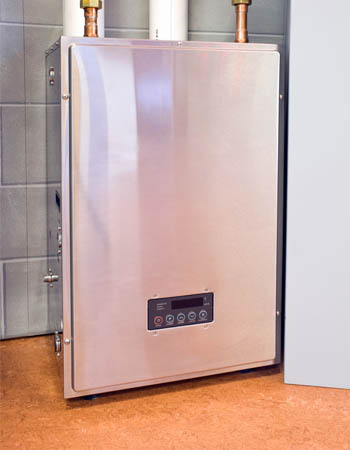
Traditional water heaters with a water tank store hot water over time to be used at a moment’s notice. Tankless heaters do not need to store water to deliver it to the rest of the house. When a hot water tap is turned on in the house, cold water flows through the tankless heater. As it travels through, the unit is heated by either a gas burner or electric heating coil. It then gets distributed to the tap in the house.
In addition to the electrical efficiency it provides, one of the biggest benefits to a tankless water heater is its size. Since there is no tank to store water, a tankless heater can be easily mounted to a wall. This gives homeowners more space while also giving them an option to hide a tankless heater more easily than a storage tank.
Tankless water heaters deliver a constant flow of hot water: about 2 to 5 gallons per minute.
Water heaters with the storage tank can provide hot water until the water tank is empty. With a tankless water heater, a home can have a steady flow of hot water at a rate of 2 to 5 gallons per minute. Some gas-powered tankless heaters can produce even higher flows of water than electric ones. On average, this is less water per minute than a storage tank heater; however, storage tank heaters are more likely to run out of hot water, especially when multiple sources are using it simultaneously.
While tankless water heaters provide a steady rate of hot water, problems can arise for some homeowners if hot water is simultaneously needed throughout the house. If someone is taking a shower and running the dishwasher at the same time, the water may not be as hot, or it’s released with less pressure. To alleviate this issue, some homeowners with larger houses will install two or more tankless water heaters. They can also install separate heaters for different appliances.
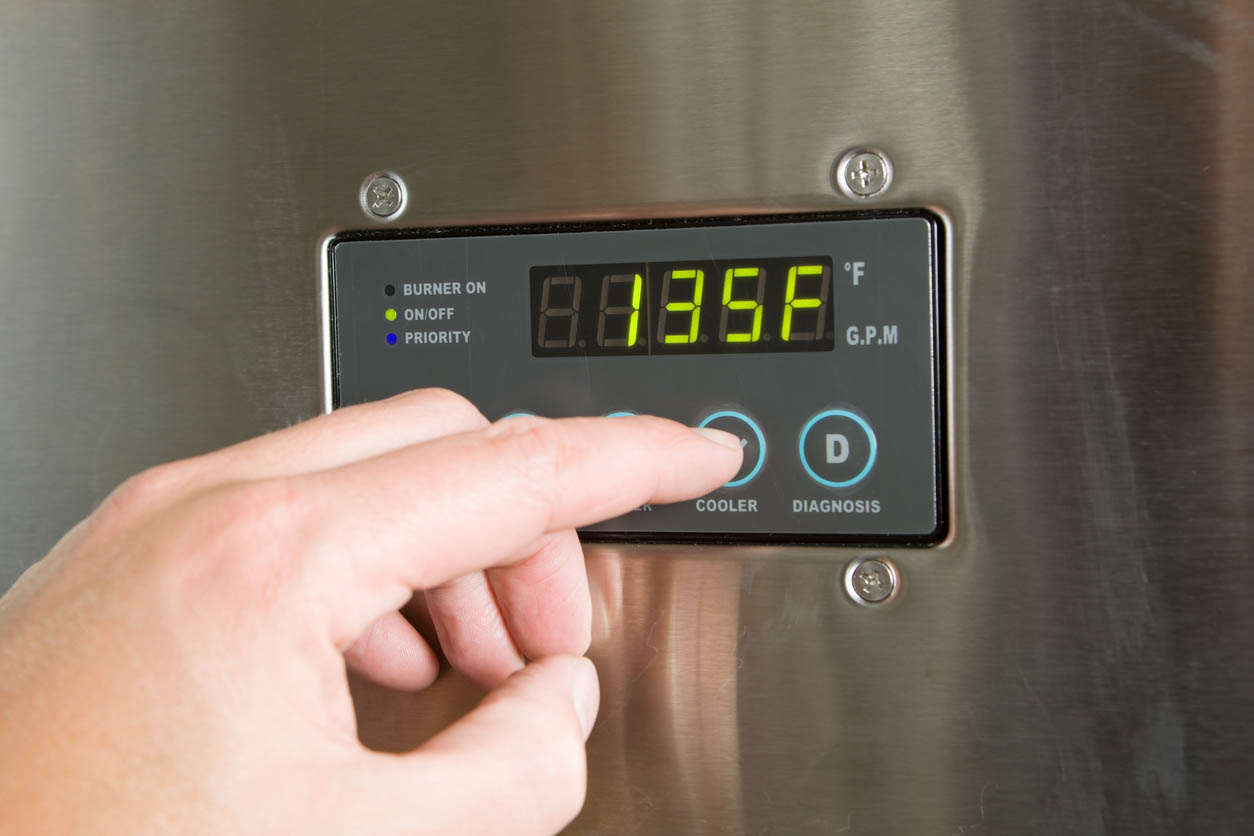
The panel adjusts the gas valve, the mixing valve, and the water flow to achieve the desired temperature setting.
Most tankless water heaters have a front-facing panel that allows the user to control its settings. This panel enables homeowners to adjust the gas value to exactly how much they’d like to use. For electric tankless heaters, panels can also control the amount of electricity. This allows homeowners better to manage their water, electric, or gas bill.
The tankless water heater panel also allows personalized settings, such as the mixing value and the amount of water flow. When installing a tankless heater, homeowners should discuss with their plumber what their preferences are and ask them to set the water heater accordingly. Homeowners should avoid drastically changing their settings if they do not have a precise reason for the shift.
Some common issues with tankless water heaters include system overload, blockages, and ignition failure.
Though they’re praised for their overall efficiency and generally need less maintenance than storage tank water heaters, tankless water heaters are not without their issues. As mentioned, if homeowners are using too many hot water applications at once, it can overload the unit. The system will then struggle to supply hot water and may shut down altogether. However, this issue can generally be avoided with mindful or preventative practices.
Tankless water heaters can also have issues if their air supply is blocked. When this occurs, the heater is having problems venting, which can also cause overload. Identifying and solving this issue is vital as it’s a major risk that can become a fire hazard.
Another common problem is when the tankless heater fails to ignite. This happens when heaters running on gas have issues with their gas supply. Homeowners should check that their gas and water valves are not fully open, as that’s usually the primary cause of the failure.
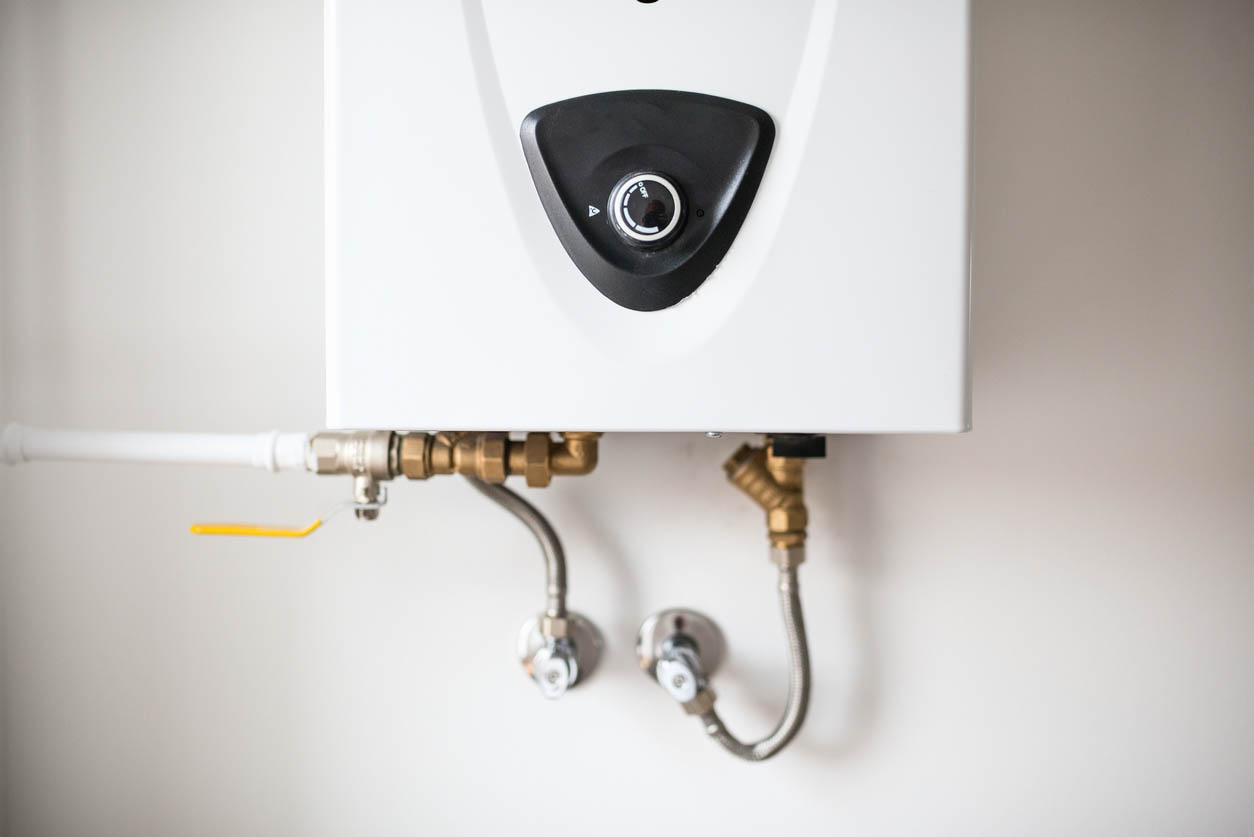
Regular maintenance keeps water flowing and removes mineral buildup.
One issue that both storage tank water heaters and tankless heaters share is the potential for mineral buildup. As time goes on, minerals have the potential to build up inside the water heater. The heat causes calcium and magnesium to create a scaly buildup, impairing the water heater’s function.
Homeowners should regularly monitor their water. They can do this by checking on the consistency of the water, as well as checking and changing the water filter. If a water filter is not regularly maintenanced, it can affect the lifespan of the system.
If you’re experiencing persistent issues with a tankless water heater, call a professional.
Tankless water heaters tend not to need a lot of maintenance and are relatively easy to use. However, there can be issues or complications with them outside routine maintenance. Any homeowner that finds any of the above issues regularly occurring should contact a professional plumber who can easily assess the problem and discuss the best solution with the homeowner.
